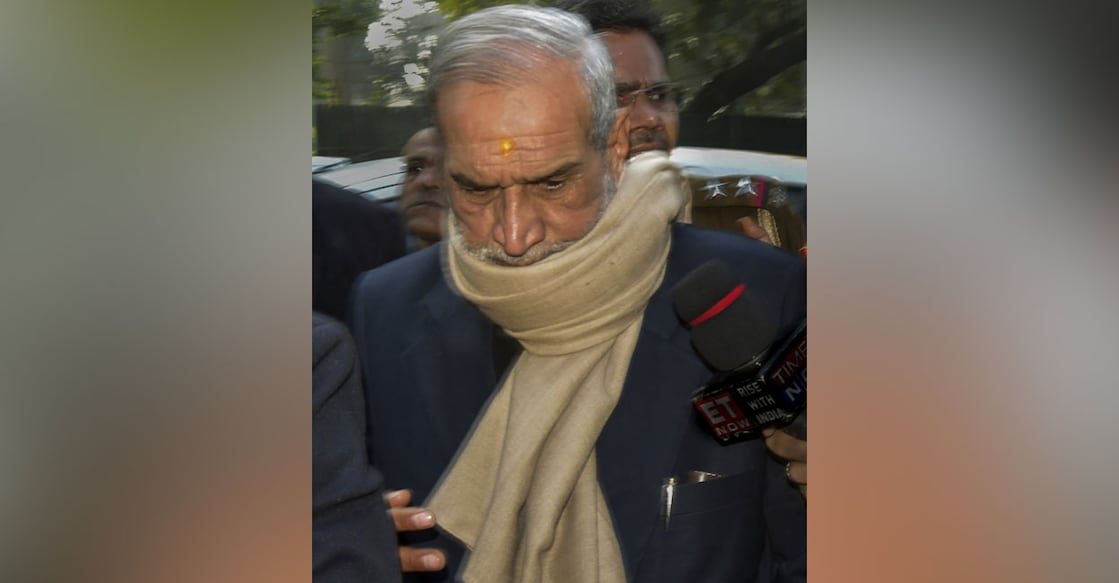Court convicts ex-Congress MP Sajjan Kumar, 2 others in 1984 anti-Sikh riots

Mail This Article
New Delhi: A Delhi Court on Wednesday ruled Congress MP Sajjan Kumar guilty. This is his second conviction with respect to the 1984 anti-Sikh riots, as he faces two more cases.
Kumar's conviction came in a case over the murders of two persons, namely, Jaswant Singh and his son Tarundeep Singh, during the violence in Delhi's Saraswati Vihar on November 1, 1984.
The judge would hear on February 18 the arguments on the quantum of punishment. The case attracts a maximum punishment of the death penalty and life-term imprisonment as the minimum sentence.
Kumar was awarded life imprisonment by the high court in a case over the killings of five Sikhs in the Raj Nagar Part-I area in Palam Colony of southwest Delhi on November 1-2, 1984 and the burning down of a Gurudwara in Raj Nagar Part-II. His appeal against the conviction is pending in the Supreme Court.
Two other appeals are currently pending before the high court against his acquittal in two other cases by the trial courts.
In the Delhi trial courts, there are two cases pending against Kumar, including one related to the violence near a Gurdwara situated in Gulab Bagh, Nawada, in which a judge put him on trial in August 2023. A Delhi court is also conducting a trial in a case related to riots in Janakpuri and Vikaspuri areas in 1984.
According to a report of the Nanavati Commission, constituted to probe the violence and its aftermath, there were 587 FIRs filed in Delhi in relation to the riots that saw the killings of 2733 people. About 240 FIRs were closed by police as "untraced", and 250 cases resulted in acquittal.
Only 28 cases of 587 FIRs resulted in convictions, in which about 400 persons were convicted. About 50 were convicted for murder, including Kumar. Currently, there are about 20 cases pending in various courts in the national capital.

